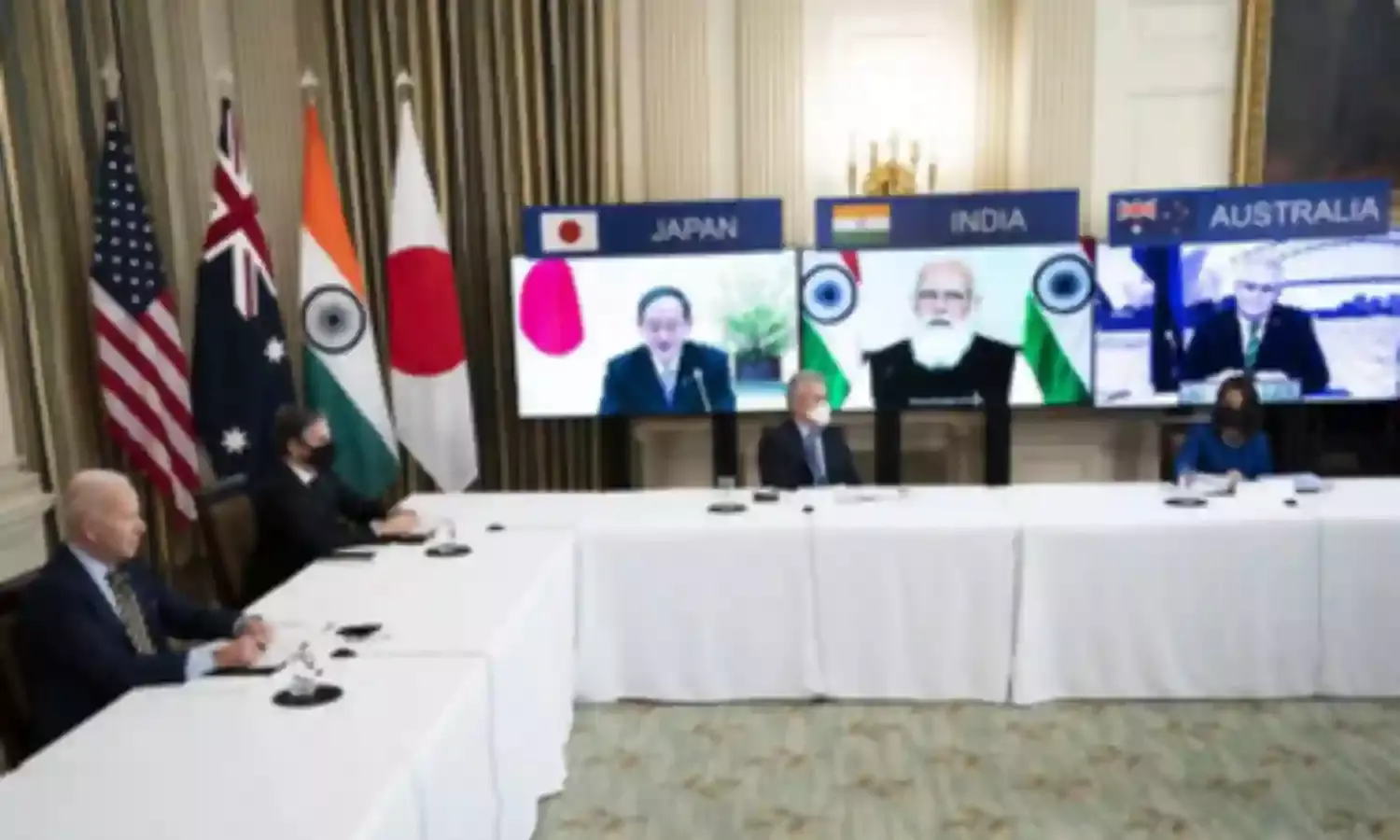US Fails to Get QUAD to Condemn Russia
US Fails to Get QUAD to Condemn Russia

The QUAD’s virtual summit held on March 3, with the participation of US President Joe Biden, Australian Prime Minister Scott Morrison, Japanese Prime Minister Fumio Kishida and the Indian Prime Minister Narendra Modi, was a tame affair at the end of it all because the US, Australia and Japan, failed to get India to agree to issuing a joint statement condemning the Russian invasion of Ukraine.
After abstaining from the vote in UNSC and UNGA, India (along with Pakistan again) on Thursday abstained from an International Atomic Energy Agency (IAEA) resolution against Russia. Twenty-six countries voted in favor of the IAEA resolution and two against it with five abstentions.
China and Russia voted against the resolution on safety, security and safeguards implications of the situation in Ukraine. India, Pakistan, Senegal, Vietnam and South Africa abstained.
But indications are that the US will not let India go without paying for such non-cooperation as Assistant Secretary of State for South Asia, Donald Lu, has indicated.
Donald Lu, who has successfully arm twisted Nepal into ratifying the US$ 500 million Millennium Challenge Corporation’s compact by threatening a reassessment of bilateral relations, told a Senate subcommittee hearing last Wednesday that Washington had been fighting a “pitched battle” with India in diplomatic channels to urge it to take a clear position opposed to Russian actions in Ukraine.
Lu also said the US is looking “very closely” at whether to apply sanctions on India over its Russian arms deals, especially the purchase of the Russian S-400s air defense system. Since the US had imposed sanctions on India previously, it should not be assumed that it will not repeat it just because India is a “strategic partner” vis-à-vis China.
In the past the US had imposed sanctions on Pakistan, a long standing ally, for stepping out of the US line.
Media reports that the US State Department had sent a strongly-worded diplomatic cable to US embassies in the nearly 50 countries represented at the UNHRC. The cable suggested that US diplomats should use some plain talking to persuade India and the UAE to change their position.
“Continuing to call for dialogue, as you have been doing in the Security Council, is not a stance of neutrality; it places you in Russia’s camp, the aggressor in this conflict,” said draft talking points in the cable, a template for conversations with Indian and Emirati diplomats. “We strongly encourage you to take the opportunity to support Ukraine in the HRC, an opportunity you failed to seize in the UNSC,” the advisory said.
However, the cable was withdrawn a day later. The State Department said that “the language in question was never intended for clearance and the cable was released in error, which is why it was recalled.”
At the QUAD summit, the Indian Prime Minister Modi said that QUAD must remain “focused on its core objective of promoting peace, stability and prosperity in the Indo-Pacific region.” He called for concrete and practical forms of cooperation within the QUAD, in areas like Humanitarian and Disaster Relief, debt sustainability, supply chains, clean energy, connectivity, and capacity-building.
Developments in Ukraine were discussed in the meeting, including its humanitarian implications, the Indian statement on the talks said. But on Ukraine Modi emphasized the need to return to a path of dialogue and diplomacy.
The leaders also discussed other topical issues, including the situation in Southeast Asia, the Indian Ocean region and the Pacific Islands. The Indian Prime Minister reiterated the importance of adhering to the UN Charter, international law and respect for sovereignty and territorial
The US statement on the summit issued prior to it had said that the leaders would discuss “the war against Ukraine and its implications for the Indo-Pacific.” The US President had said that the meeting was “about Russia’s ongoing attack on Ukraine and our commitment to sovereignty and territorial integrity around the world, including in the Indo-Pacific.”
The Japanese PM said that “unilateral changes to the status quo by force or coercion like the recent Russian aggression against Ukraine are also unacceptable in the Indo-Pacific region. It is critically important for us to bring about a free and open Indo-Pacific.”
However, the joint statement issued after the virtual summit did not condemn Russia, apparently because of objections made by India.


